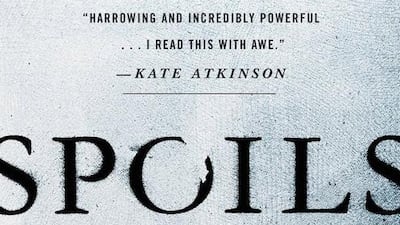America's infamous military campaigns in Iraq are steadily being picked apart through literature, and they rarely make for happy reading, even if the books themselves are often brilliant. Billy Lynn's Long Half Time Walk, by Ben Fountain, and Kevin Powers's The Yellow Birds both conveyed a lasting sense of repugnance, guilt and sheer destruction.
Now we have Spoils, and debut novelist Brian Van Reet certainly shares much with Powers in terms of a horrifying experience – he was also on active service in Iraq – shared through fiction.
Naturally, Van Reet’s first-hand knowledge lends the vivid battle scenes credibility and underpins a familiar war narrative with a visceral quality. Female soldier Cassandra and tank crewman Sleed are brutalised by what they see on the front lines in Iraq, as uneasy with their own troops’ behaviour as the enemy’s.
In tone and feel, the eye- wateringly abusive exchanges will be familiar to anyone who saw David Simon's memorable television mini-series Generation Kill, which explored the motivations and attitudes of young people sent halfway around the world to fight in an uncertain war.
But Spoils isn't all whooping Americans momentarily delighted when they mow down targets. Van Reet has said that when he was in Iraq, he couldn't stop thinking about the people he was fighting. Happily, the sections told from the point of view of jihadi Abu Al-Hul are well judged and ring true. There's never the sense they've been tacked on. In fact, it is Sleed's subplot that feels unnecessary.
Sleed's tale is only there because his avarice gets Cassandra into the kind of trouble that finally gives Spoils an actual plot, almost halfway in. It would be unfair to give too many details but it won't surprise you to learn that Cassandra ends up face to face with Al-Hul, and they each see something of themselves in the other. This mirroring of unsure combatants is a neat device, but Van Reet never really hits the heights of Powers's more poetic novel.
Perhaps the brutal scenario doesn't always require literary high-jinks, but the straightforward writing means Spoils feels more like an exercise in show and tell than a story with something deeper to explore.
This is a shame, because it feels like Spoils could be an important book, simply because it is an American novel that has no qualms in chronicling the Iraq War as the disaster it was for so many people, no matter their nationality.
artslife@thenational.ae

